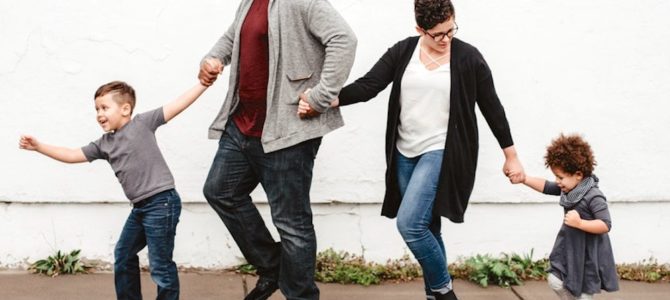
It’s doubtful whether any accusation of privilege in our lexicon will overtake “white privilege.” But among the crowd of recent upstarts is one exceptional one: “two-parent privilege.”
The term may have originated with a Dennis Prager article in National Review a few years ago, but it has entered the left’s mindset as another indictment of affluent people who just don’t or can’t understand the experiences of people different from them. This is because being raised by your two parents is thought of as an upper-class phenomenon, while being raised by a single parent is thought of as a low-income phenomenon. It features, for example, in lists of questions asked in “privilege walk” exercises.
But “two-parent privilege” is an intriguing formulation and one worth exploring. What does it really mean?
What is a ‘Privilege’?
When we call something a “privilege,” we generally mean two things by it: It is some good thing not everyone enjoys, and it is unearned and undeserved — especially when contrasted against a “right,” as in, “Driving is a privilege, not a right.”
As to the first component, being raised by both biological parents seems clearly to be the optimal scenario for children. Better educational and emotional outcomes have been found by studies that control for other factors, such as wealth and genetics. For example, as the Witherspoon Institute summarized, “One study found that 37 percent of children born outside of marriage and 31 percent of children with divorced parents dropped out of high school, compared to 13 percent of children from intact families headed by a married mother and father.”
One “child of divorce,” Elizabeth Marquardt, summarized the research of her scholarly book on the subject thusly: “Our parents’ divorce is linked to our higher rates of depression, suicidal attempts and thoughts, health problems, childhood sexual abuse, school dropout, failure to attend college, arrests, addiction, teen pregnancy, and more.”
But what about the other component? Is being raised by both parents some sort of undeserved blessing?
Social science, surveys, and statistics can’t answer this sort of question. The answer basically derives from what you believe about right and wrong. But many Americans have accidentally allowed a contradiction into their beliefs here. Being raised by both parents is a right, not a privilege.
Rights Are Different from Privileges
Some important points here: Possessing a right is not the same as exercising or enjoying that right. As an anonymous contributor recently wrote at The Federalist:
Rights are constraints upon others to safeguard what we do by nature. … A right, by definition, is universal, arising from our nature as humans.
In other words, we roughly have a right to anything that would be wrong for someone else to withhold from us. That’s not a circular definition, since the actual contours of what constitutes right and wrong still must be supplied from somewhere else; it’s just a notice that those two concepts are two sides of the same coin that must match if our understanding is to be consistent.
And this is a natural right, not a civil right. Civil rights are merely whatever some body of legislators has codified. Sure, we often try to align our government’s rights with some notion of natural rights as far as we can, but the two categories are different. The right to be raised by one’s parents is a natural right that can be spoken of in terms of moral right and wrong, independent of what the government happens to legislate.
Of course, natural rights may be unfulfilled or violated. A man’s right to life may be violated if he is murdered. That does not mean he didn’t have a right to life; it just means the murder was a wrong committed against him that violated his right. Likewise, a child might grow up with divorced or deceased parents. Neither deliberate wrongs nor tragedies of nature keep us from acknowledging natural rights. Just because some people drown at sea or die of cancer independent of human action doesn’t mean they didn’t have the right to live.
Children Have a Right to a Two-Parent Upbringing
Bearing this in mind, we should start thinking of a two-parent upbringing as something to which children have a right. Helpless infancy and growing up are as much parts of human nature as anything else. The necessary flip-side of this coin is that parents have a responsibility to their children.
This isn’t an absolute right that overrides all others. If one philanderer impregnates two women within the span of a month, that would be a wrong thing to have happened. What happens next is less clear because the ideal outcome is already ruled out. Of course, promoting the cultural expectation that people have a responsibility to raise their children minimizes this outcome in the first place.
The ways this understanding would manifest in public policy are as disparate and subtle as our legal code itself. It might at least result in an end to state-sponsored payments for birth parents to stay apart, even if that’s just the unintended consequence of a good-hearted effort to help single parents. But when we talk about parents and children, we would be more correct not to think of a two-parent upbringing as a privilege to be enjoyed by the rich few — just an accident, occurring apart from human input — but as something every person owes to every other person he or she hazards to create.









